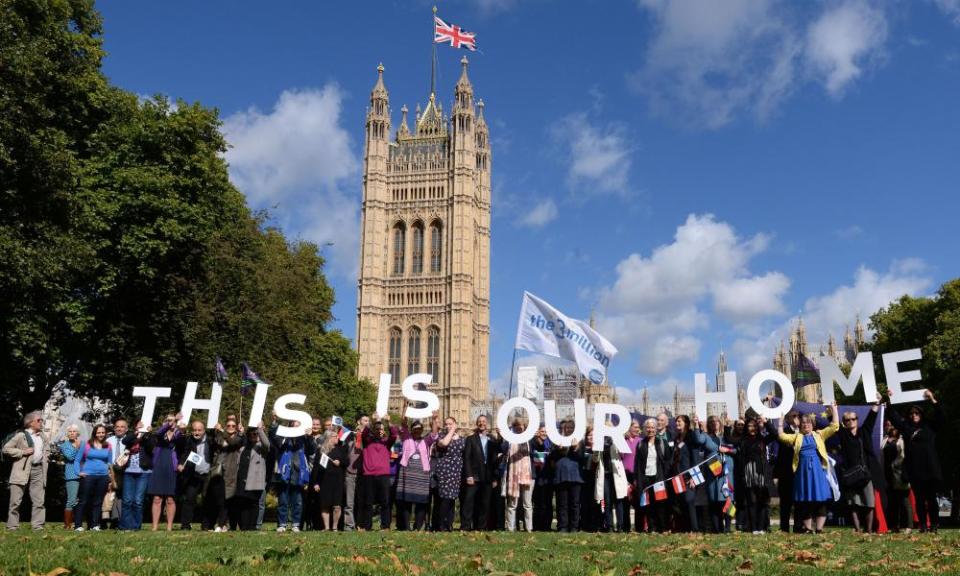Home Office may struggle to register EU settlers in time, say campaigners

The government will struggle to register all of the EU citizens who want to stay in Britain post-Brexit within the next two years, even after scrapping a £65 fee for the application process, campaigners have said.
On Monday, Theresa May said she had listened to concerns about the fee and decided to remove the “financial barrier” facing an estimated 3.8 million EU nationals living in the UK.
Rights groups had earlier said the Home Office risked creating a new Windrush scandal if it got the scheme wrong.
The the3million campaign group welcomed the move, announced during May’s statement to the House of Commons on her Brexit plan B, but said the task facing the Home Office could be insurmountable.
“Because of the scale of the operation – registering up to 3.8 million people – and the time allowed, the Home Office is looking at having to process 5,000 applications a day for the next two years. If they are struggling with smaller numbers now, then EU citizens risk becoming the new Windrush,” said Nicolas Hatton, a co-founder of the group.
The Home Office launched a third test phase for the registration scheme on Monday. Last month, a series of bugs were exposed in the scheme’s phone app, including complaints that the passport recognition function did not work on all Android devices. The app does not work on iPhones.
Alexandrine Kantor, a French citizen who is an engineer at the Atomic Energy Authority, said she had to try 10 times to get the passport chip scanner to work using her Huawei. “And I have one of the latest phones and I am an engineer who is a bit techy. I can’t imagine what it will be like for old people trying to apply. It is not as easy and straightforward as they say,” she said.
The Home Office said this latest phase of the scheme was “a test designed to identify bugs before the full rollout” in April.
There was a largely positive response to the app on the Google Play store, from where it can be downloaded. “Worked without any problems,” said one commenter. “Scanning and near field communication working well,” said another, referring to the technology used to scan the passport.” “It took me two minutes on my phone from the beginning to the end,” said another.
But others reported problems with phone focus, the instructions on the app and a loop. “It keeps sending the same message,” said one. “Terrible – Won’t even take picture of passport. Just wasted 30 minutes for nothing,” said another.
More than 31,000 people applied for settled status during the two beta tests and more than 27,000 were successful.
Around a third of the 2,776 cases awaiting a decision reported that they were unable to use passport verification process on the phone app and had to submit their ID manually.
Hatton said: “You would expect them to have ironed out these technical problems in the beta tests.”
The Home Office said it was working with representatives of vulnerable groups, local authorities and experts to make sure less tech-savvy people would be able to register on time.
It said it had set up a resolution centre to deal with queries and increased caseworker numbers to 1,500 to help anyone having difficulties with the app.
A spokesman said the Home Office was “monitoring applicant feedback very closely, including reviews on the Google Play store” and it was in talks with Apple about getting the app on iPhones.
He added that once the scheme was fully open on 30 March, applicants would be able to post their ID document to the Home Office or visit “a local ‘chip check’ service run by a local authority or other provider”.

 Yahoo News
Yahoo News 